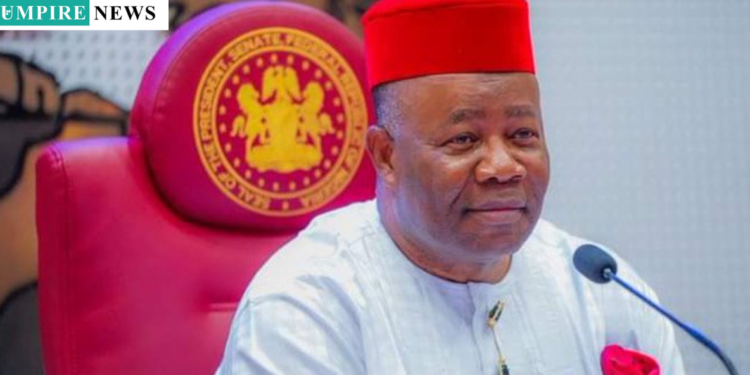The President of the Senate, Godswill Akpabio, and the Speaker of the House of Representatives, Tajudeen Abbas, have called for an end to the killings of Nigerians over religious and political differences. This appeal was made during the ‘High-Level Discourse on Religion and Democracy’ program in Abuja, organized by the National Peace Committee (NPC), a platform for fostering national unity with Gen. Abdulsalami Abubakar, a former Head of State, as its chairman.
Akpabio, represented by former Edo State Governor Adams Oshiomhole, stressed that despite Nigeria’s vast population, the country should not be grappling with religious intolerance. He highlighted that religion, when used positively, could be a powerful force for unity, understanding, and respect among Nigeria’s diverse communities. He called on Nigerians to embrace their differences and protect the right to worship freely while confronting the dangers posed by religious violence and intolerance. “As Mahatma Gandhi said, an eye for an eye only ends up making the whole world blind,” Akpabio concluded.
Speaker Abbas, represented by the Majority Leader, Julius Ihonvbere, addressed the politicization of religion, noting it as one of Nigeria’s primary democratic challenges. Abbas acknowledged the significant role religion plays in shaping the country’s culture but warned against using religious sentiments for political gain, as it has often led to division and conflict. He stressed the importance of understanding the delicate balance between religion and politics, which could otherwise lead to polarization among Nigerians.
Bishop Matthew Kukah of the Sokoto Diocese also spoke passionately against religious violence. He condemned the recent killings in the name of religion, including the tragic case of Deborah Yakubu, a student murdered over an alleged blasphemy accusation. Kukah lamented that religion has become a justification for taking innocent lives, citing both Christian and Muslim victims as examples of a broader societal problem. He called for the restoration of moral integrity, highlighting the need for religious leaders to guide politicians to fulfill their promises and address basic societal needs without resorting to divisive religious rhetoric.
The Ambassador-Designate of the European Union to Nigeria and ECOWAS, Gautier Mignot, expressed the EU’s continued commitment to promoting global peace. He reiterated the importance of dialogue and cooperation in resolving religious and political conflicts, stressing that peacebuilding efforts must be a shared responsibility across communities and nations.


































